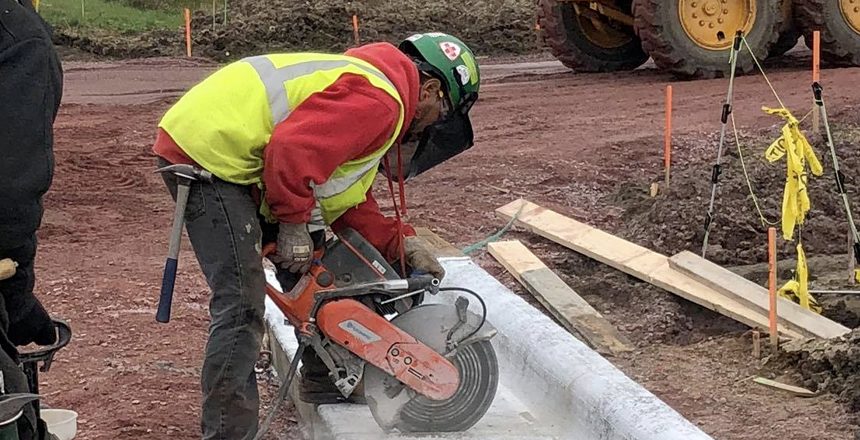June is a popular month to raise awareness for many social causes. For Brooks Construction, June signifies National Safety Month.
Founded in 1996 by the National Safety Council, National Safety Month exists to remind everyone of hazardous work environments and unintentional injuries that can occur at any moment. That is why Brooks Construction focuses on team safety 365 days a year, utilizing proven procedures, proper equipment, training, and mentoring of our new employees.
Arnold Toynbee was a late 18th-century historian. He coined the term Industrial Revolution and first raised awareness of workplace hazards when describing coal miners and textile industry workers. During this time in history, these workers operated in unsafe environments, used dangerous tools, and often worked more than 10 hours for minimum wage.
In 1877, the Massachusetts Factory Act was passed. It was the first factory safety and health law in the United States. By 1879, it established an official inspection force that visited workplaces. Within 13 years, other states issued similar regulations to improve safety standards across many industries.
By 1913, the National Safety Council in Chicago estimated that at the time, more than 20,000 industrial workers in the U.S. died each year due to poor working conditions. In 1936, the Walsh-Healey Public Contracts Act passed, improving industrial labor standards. But it wasn’t until 1970 that President Richard Nixon signed the Occupational Safety and Health Act, commonly referred to as OSHA.
The evolution of employee safety has been a long process, but today, we are thankful that National Safety Month exists. It helps Brooks Construction and employers everywhere focus on all aspects of employee health and safety, such as emergency preparedness, wellness, falls, and driving. It also provides insight into the history of industrial safety, providing valuable information and statistics about safety standards and labor laws in different industries.
How You Can Celebrate National Safety Month
National Safety Month also offers safety tips for everyday life, teaching us to be forward-thinking and anticipate potential dangers or disasters at home.
If you think you could benefit from re-evaluating your level of personal preparedness, consider simple these simple tips:
Practice Home Fire Drills
While unlikely, the risk of fires is a reality in any environment. Simple precautions can help save your property and you and your loved ones. Get started by selecting a safety point outdoors and close to your home. Then, test your fire alarms—ensuring batteries are in good working order—and perform an all-out fire drill with your family. This simple exercise helps ensure that everyone in your home knows what to do in the case of a fire.
Update Your First-Aid Kits
Nobody plans to get injured, but you typically don’t want to be fumbling around for what you need to treat a wound when it happens. Keeping an updated professional-grade first-aid kit is an easy way to stay prepared. If you don’t already have a first-aid kit, consider stocking it with dressings, bandages, tape, ointments, wipes, aspirin, gloves, scissors, and gauze pads. And check your kit regularly to remove any ointments or medicines that might be expired.
Practice Self-Defense
In sports, the best offense is a good defense, and it’s also true in life. Being mentally and physically prepared for potentially dangerous situations can often be the difference between life and death. The good news is that anyone can learn basic self-defense, no matter their age, and karate, boxing, or jiu-jitsu (to name a few) are standard practices to ward off a threat.
Increase Your Self-Sufficiency
Natural disasters, civil unrest, economic downturns, and supply chain issues are all causes of concern these days. And they underscore the importance of re-evaluating your level of self-sufficiency in times of crisis. A concrete dome home provides FEMA-level safety from natural disasters and incredible year-round energy efficiency. A dome home can even serve as a year-round grow room, protecting food crops from damaging weather and insects.
If you’d like to learn more about a concrete dome from KingDome Builders, a division of Brooks Construction, call 605-368-5447 or click here to schedule a tour!



